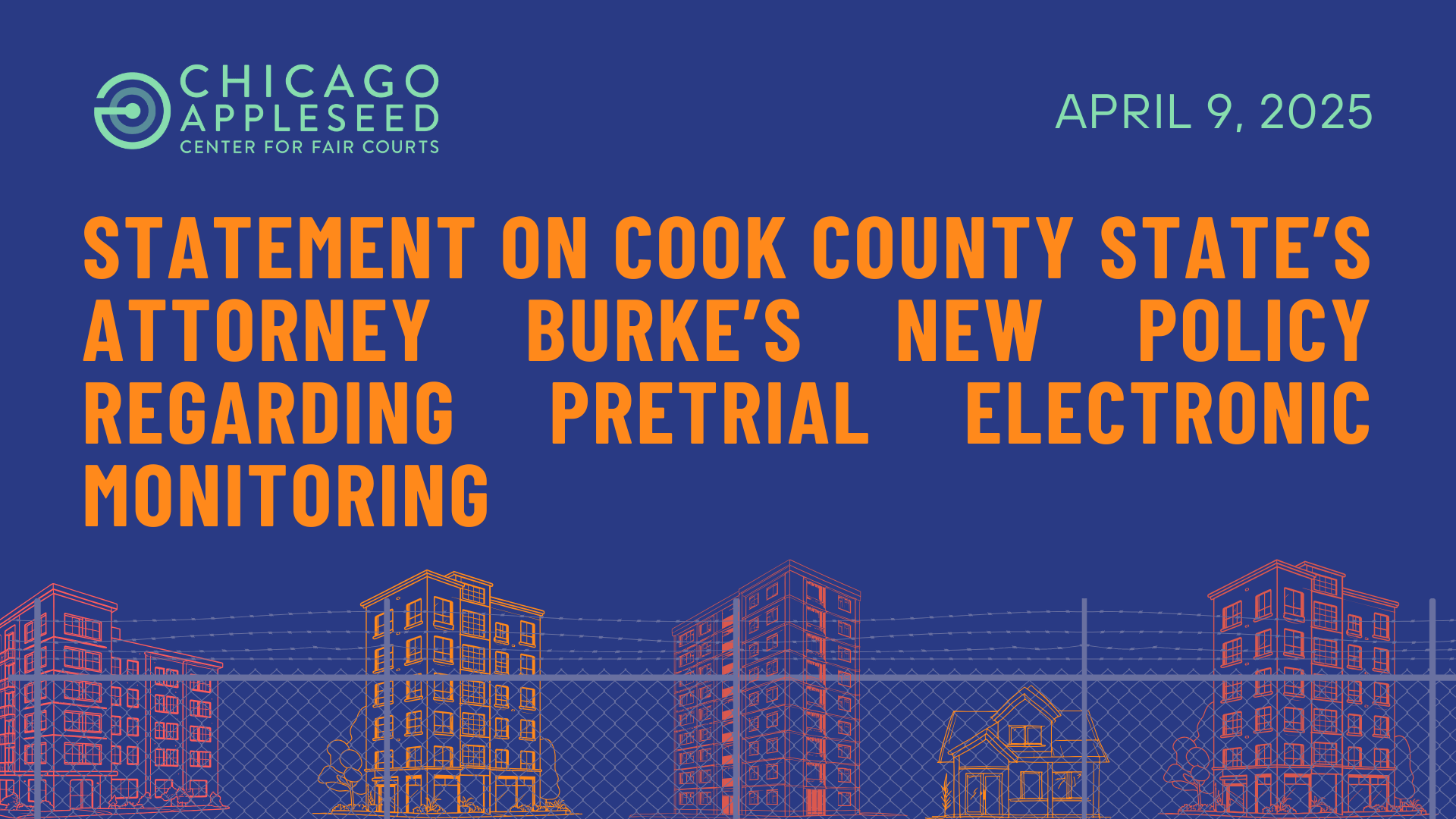Statement on State’s Attorney Burke’s New Policy Regarding Pretrial Electronic Monitoring
Written by Austin Segal, Research Manager & Jill Dupont Memorial Fellow, and Naomi Johnson, Co-Executive Director.
We strongly oppose State’s Attorney Eileen O’Neill Burke’s new policy that requires prosecutors to object on the record in all cases where their petition to detain an accused person pretrial is denied and that person is released on electronic monitoring.
Though electronic monitoring replicates many harms of incarceration in jail, it mitigates some harms by allowing those accused of crimes to stay employed, go to school, take care of a child or loved one, and attend to their other responsibilities before their trial, including full participation in preparing for their defense. The Chief Judge’s program—which became Cook County’s only electronic monitoring program on April 1, with the Sheriff’s program no longer accepting cases—has managed its population effectively since 2009. In fact, the Chief Judge’s program has been repeatedly cited as the better managed program, largely due to its case management system in which every monitored person is assigned a pretrial officer.
Burke’s announcement aligns with her administration’s general approach of casting a wide net with regard to pretrial detention–and undermines the goals of pretrial detention reform. On her first day as State’s Attorney in December, Burke announced that her office would seek detention for every case involving certain types of charges, such as possession of a defaced firearm. Requiring state’s attorneys to object on record when detention is denied and release on electronic monitoring is granted demonstrates the administration’s disregard for an individualized approach to pretrial decisions, which is at the core of the Pretrial Fairness Act. These directives, put together, make us doubt the State’s Attorney’s administration’s commitment to thoughtful decision-making about pretrial detention.
The Pretrial Fairness Act is clear that judges’ “decisions regarding release, conditions of release, and detention prior to trial must be individualized, and no single factor or standard may be used exclusively to order detention.” With her new policy, Burke is demonstrating little trust in judges to decide whether detention is necessary to mitigate risk based on the specific facts of each case and is calling out factors that she believes require detention in all cases. She is attempting to pressure judges to grant detention on her assessment whenever her office requests it, rather than allow judges to make individual determinations in each case. This undermines the Pretrial Fairness Act by suggesting that judges should always comply with prosecutorial decisions. Furthermore, the State’s Attorney implies that the Office of the Chief Judge’s electronic monitoring program is ineffective when it has, in fact, been operating successfully for decades, with no evidence to show mismanagement. Judges must continue to use their discretion and weigh the evidence of each case to make individual case-level decisions.
We also want to reiterate the importance of data transparency from both the Office of the Chief Judge and the State’s Attorney’s Office. Since the judiciary is not subject to public records laws in Illinois, the Chief Judge cannot be compelled to release data on the electronic monitoring program—a major difference from the Sheriff’s program. We encourage the Office of the Chief Judge to release robust data on a regular schedule so that advocates can refute the claim that releasing people on electronic monitoring is more dangerous than detaining them and can address claims that the switch from the Sheriff’s Office to court management of the program has created mismanagement. We also urge the State’s Attorney’s Office to release data on their charge filings (including “escape” charges) as the previous prosecutorial administration did, as well as data on petitions to detain.

